In this article – following a recent interview with Nile University of Nigeria’s Pro-Chancellor, Mr. John Vermaaten, and Chief Financial Officer, Mr. Lateef Kareem – Daily Trust’s IDOWU ISAMOTU spotlights the remarkable expansion of state-of-the-art facilities within the expansive campus of Nile University of Nigeria, situated in Abuja, the nation’s capital.
As a proud member of the prestigious Honoris United Universities network (the first and largest pan-African private higher education network), Nile University has passionately delivered exceptional education and a rich student experience to both its Nigerian and international students. Adjudged as one of the top private tertiary institutions in the country, the Honoris-owned institution is certified by the National Universities Commission (NUC).
With an impressive array of over 90 undergraduate and postgraduate programmes spanning eight faculties, including Medical & Health Sciences, Arts & Social Sciences, Engineering, Environmental Sciences, Management Sciences, Science, Computing Studies, and Law, Nile University is steadfast in its commitment to nurturing solution-oriented leaders poised to make a meaningful impact in Africa and beyond.
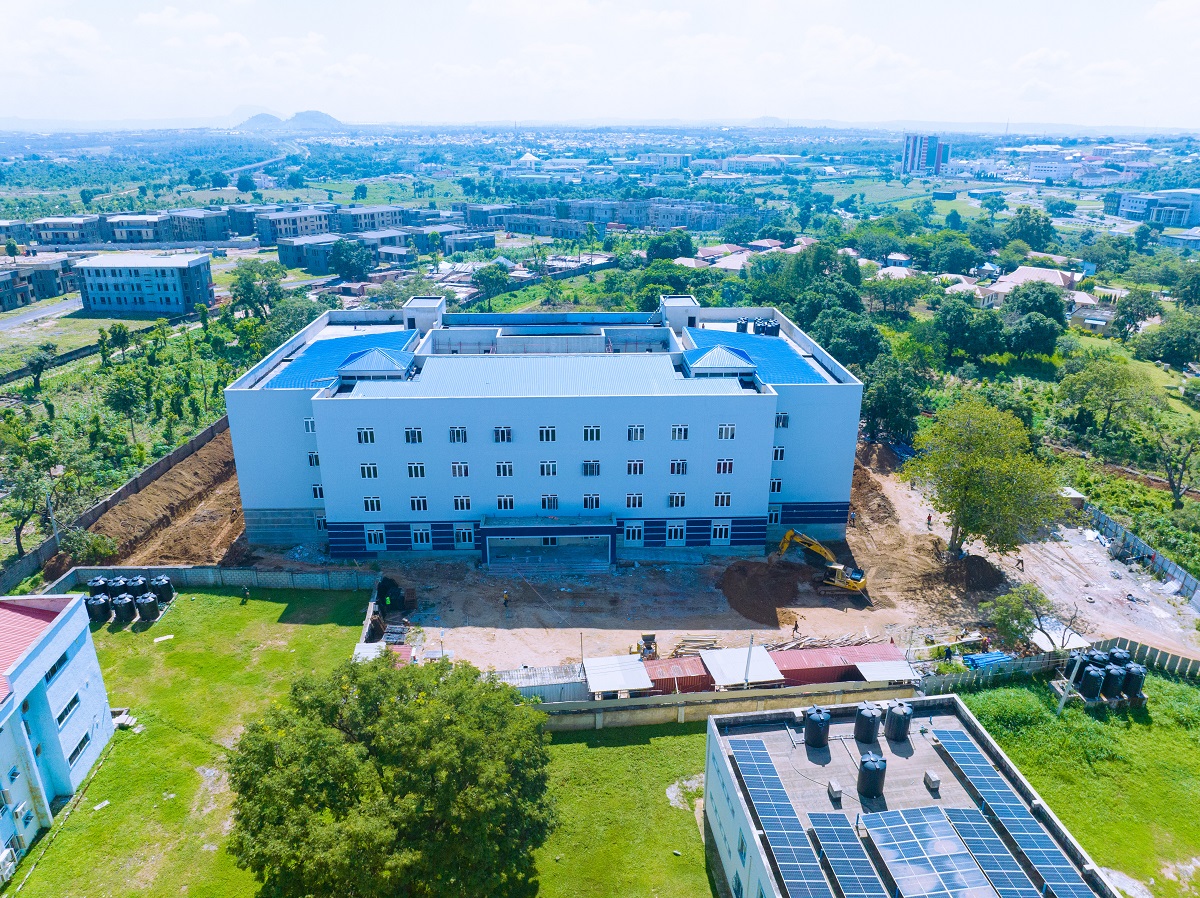
Embracing its affiliation with the Honoris network, Nile University has embarked on a journey of remarkable growth and achievement over the recent years. This growth is tangibly evident in the numerous completed and ongoing monumental structures that grace its picturesque campus and extend beyond. The evolution of Nile University stands as a testament to its burgeoning student population, amplified reputation, and the transformative influence of its association with Honoris United Universities.
How it all started
Founded in 2009, on a 113-hectare residential campus in Abuja, Nile University of Nigeria had a little under 100 students and three faculties at the time of formation. Driven by its dedication to providing high-quality education to the country’s teeming youths, the university enjoyed a steady growth in student population, programme offerings, and profile in the ensuing years. By 2020, before its acquisition by Honoris United Universities, Nile University had grown to over 2,000 undergraduate and postgraduate students.
Joining the Honoris network – which boasts 15 institutions across 10 African countries – in 2020 was a critical point in Nile University’s trajectory, rapidly catapulting the university from a predominantly regional player into a major national one in the Nigerian education sector.
Honoris had a clear objective for Nile University, in line with the network’s Education for Impact mission – transform the institution into the leading university in Nigeria that prepares solution-oriented leaders to create an impact in Africa and beyond through the provision of world-class education and a robust student experience.
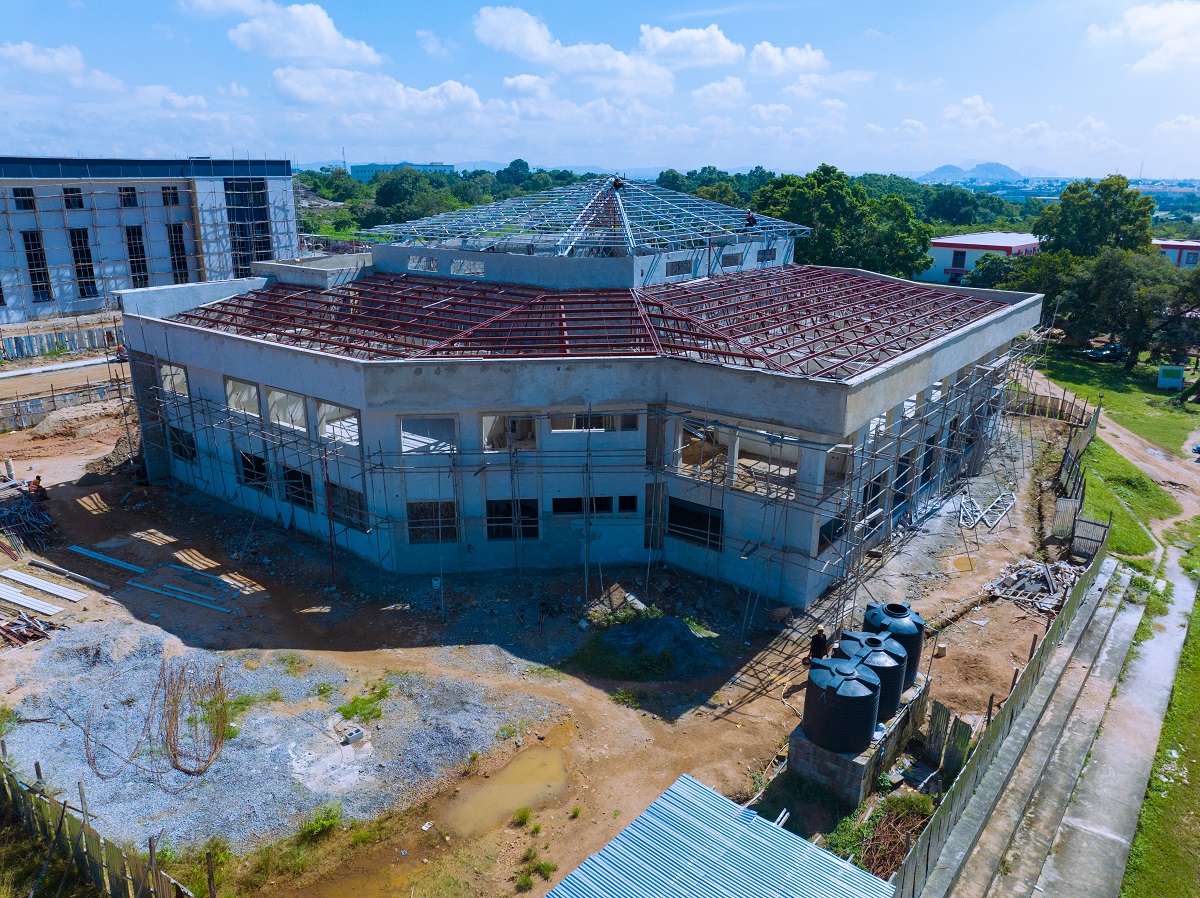
To achieve this ambitious but surmountable goal, the Honoris-backed university has invested significantly in academic innovation (future-oriented teaching approaches such as work-integrated learning, flipped classrooms, 21st-century skills programmes, etc.), employability initiatives (establishment of the career services centre and entrepreneurship hub, high-profile industry partnerships facilitating internship and job placements for students/graduates, etc.), and extracurriculars (sports, student clubs, etc.), amongst others.
These efforts have proved hugely successful. Beyond the vastly increased national awareness and reputation now enjoyed by the Nile brand, the student population has witnessed stratospheric growth – the institution’s student community has more than tripled in the three years post-Honoris. The rapid, unprecedented, ongoing growth of the Nile University community necessitated an increased investment in infrastructure to cater to the needs of the university population.
“We’re very focused on providing a good experience for our students while they’re here on campus and achieving balanced growth. This means expanding our facilities to accommodate our growing population” stated the Pro-Chancellor (John Vermaaten).
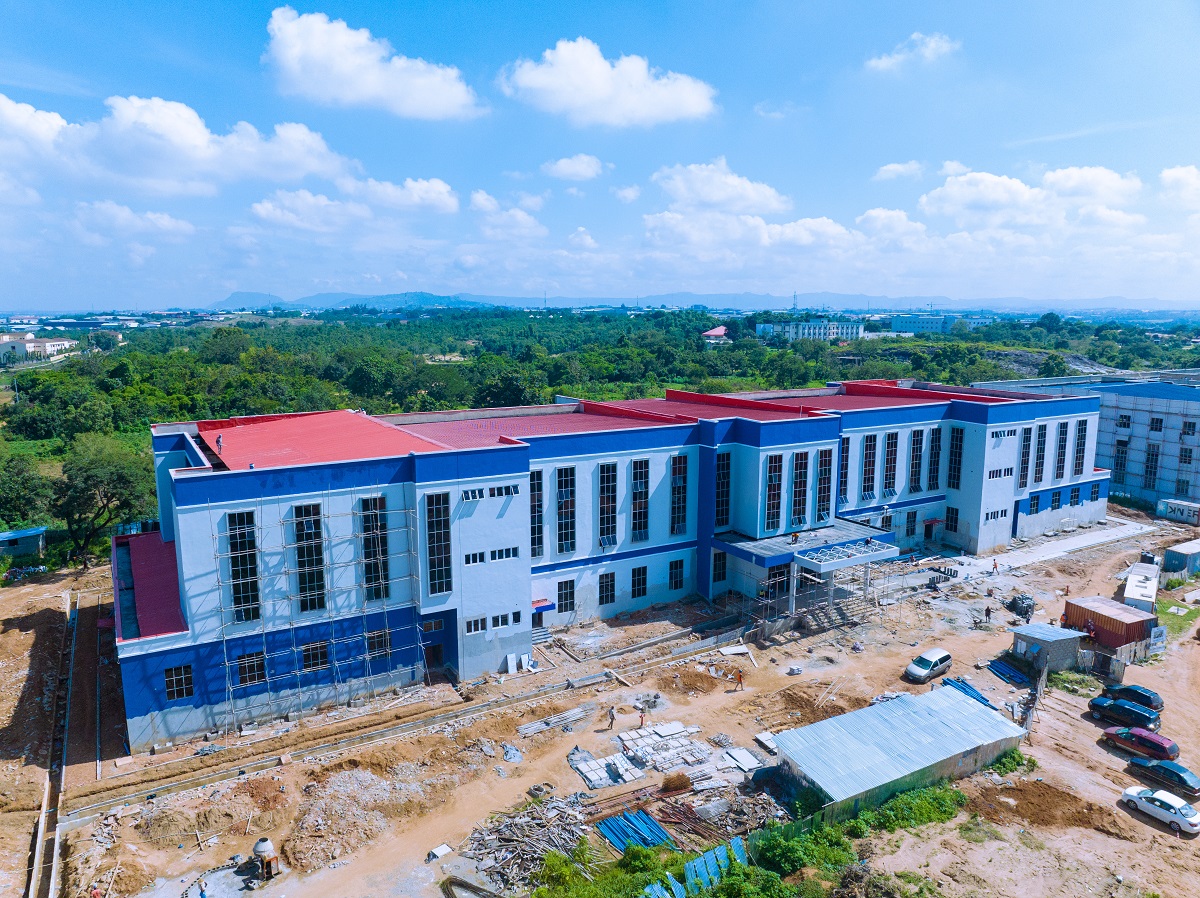
In light of this, Nile University, supported by Honoris, embarked on an accelerated, multifaceted capital project designed to support the university’s academic credentials and reinforce its ability to deliver a top-notch student experience.
The CFO, Lateef Kareem, commented: “Most important for us is the ability to have the right number and quality of infrastructure to match our increasing enrolment numbers. Back in my school days, students would always struggle to arrive at their classrooms an hour earlier just to get a good seat due to inadequate facilities.
“For us at Nile, the experience is different. We always strive to ensure that there are adequate classrooms and lecture theatres for students. Our lecture rooms have seating capacities ranging from 50 to as much as 200. We remain committed to investing in the required constructions to address our present and future growth needs.”
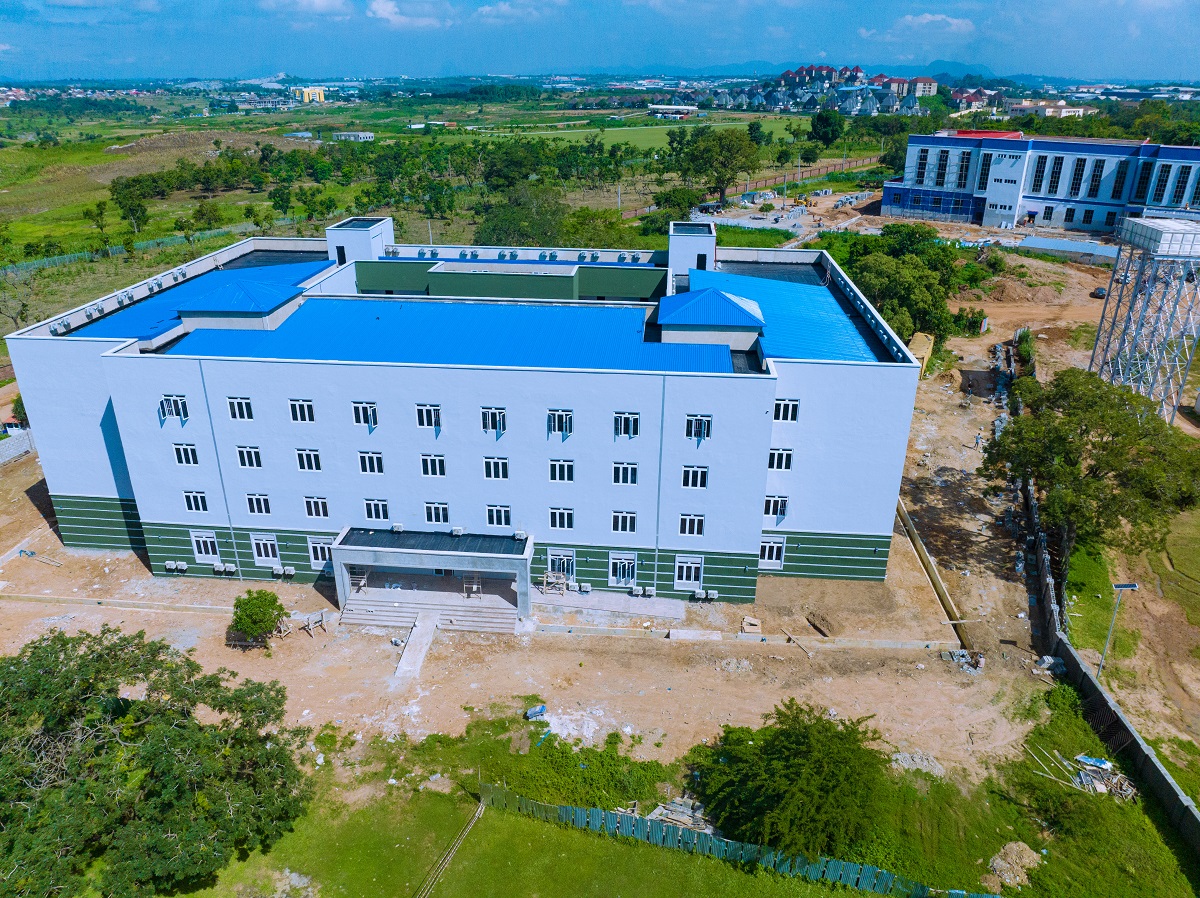
The growth of world-class facilities at Nile varsity
The first phase of Nile University’s capital projects commenced in 2020 and lasted till 2022.
Daily Trust reports that it included the construction of a training facility at the Asokoro District Hospital for the university’s medical students (comprised of 150-seat classrooms, an E-Library, and over 100 beds for their residency), a 6,000sqm Law Faculty building, upgraded laboratories (with equipment and software worth hundreds of millions of Naira to enhance student learning, especially in STEM education), two hostel blocks for male and female students respectively, and multi-purpose halls for dining and other social activities for the students. Additionally, the Honoris-owned institution invested in an 876-kWp solar power system, brand new transformers and synchronized power substations to facilitate uninterrupted power supply on campus and drive sustainability, as well as new water supply systems.

Where we are
Nile University is currently in the advanced stages of Phase II of the capital project, which commenced in 2022 and is nearing completion.
The facilities being built in this phase include the academic building, STEM lab, hostels, student centre, medical simulation centre, and additional power stations, among other structures. Providing insight into the rationale behind the ongoing academic building project and its expected benefits, Vermaaten stated, “We always look for ways to better serve and respond to the dynamic demands of our students and parents which are reflective of our fast-changing world. One way we do this is the introduction of new in-demand programmes and faculties that are relevant to the present and future world of work. In the previous [2022/2023] academic session, we introduced the faculties of Environmental Sciences and Computing Studies and have seen a lot of students gravitate towards them. As we grow our academic programmes to meet market demand, it is also important to have enough dedicated buildings to help us effectively teach them. This is the idea behind the construction of the new academic building – [to provide] a space that supports high-quality teaching and learning.”
Adjacent to the academic building in what is now known within the Nile campus as the main construction zone (featuring the bulk of the ongoing capital projects) is the soon-to-be-completed STEM Lab, a 2,000+ capacity edifice with a footprint of over 4,000 sqm. According to Kareem, the STEM Lab is poised to be the university’s training ground for developing future generations of professionals in various science, technology, and engineering fields to spearhead the next phase of technological evolution in Africa and beyond.
He said: “We believe that the Fourth Industrial Revolution will be driven by the African continent because we’ve got the fastest growing and youngest population globally. Nigeria alone has over 200 million people with a sizeable portion of that population in the mid-teen to early 20s age group. This is the idea behind the STEM lab. It is a core initiative for us to plug into that space of creating those talents that will drive this era characterized by disruptive technologies.
“The STEM lab is a building with several spaces where students can gain practical knowledge in the broad fields of science, engineering, and technology. You have spaces [in the STEM facility] dedicated to hands-on training in mechatronics, applied security, electrical/electronics, and other STEM fields. Not many universities in the country offer the sort of training and learning opportunities promised by this facility, which makes its value to our students even more immense.”
Combining with the academic building and STEM lab to support the university’s delivery of top-notch academics to the growing student community is the medical simulation centre currently being built. The facility, billed to be the first of its kind in Nigeria, will be equipped with modern technology to enable students to carry out a wide variety of lifelike simulations in a safe and controlled environment to boost their competence and prepare them for success in their medical careers. Explaining the far-reaching benefits promised by the simulation centre, Vermaaten commented, “Beyond helping students improve their skills and get good jobs after graduation, the simulation centre is also good for the country because the country needs a consistent supply of good doctors, and this will help meet that need.”
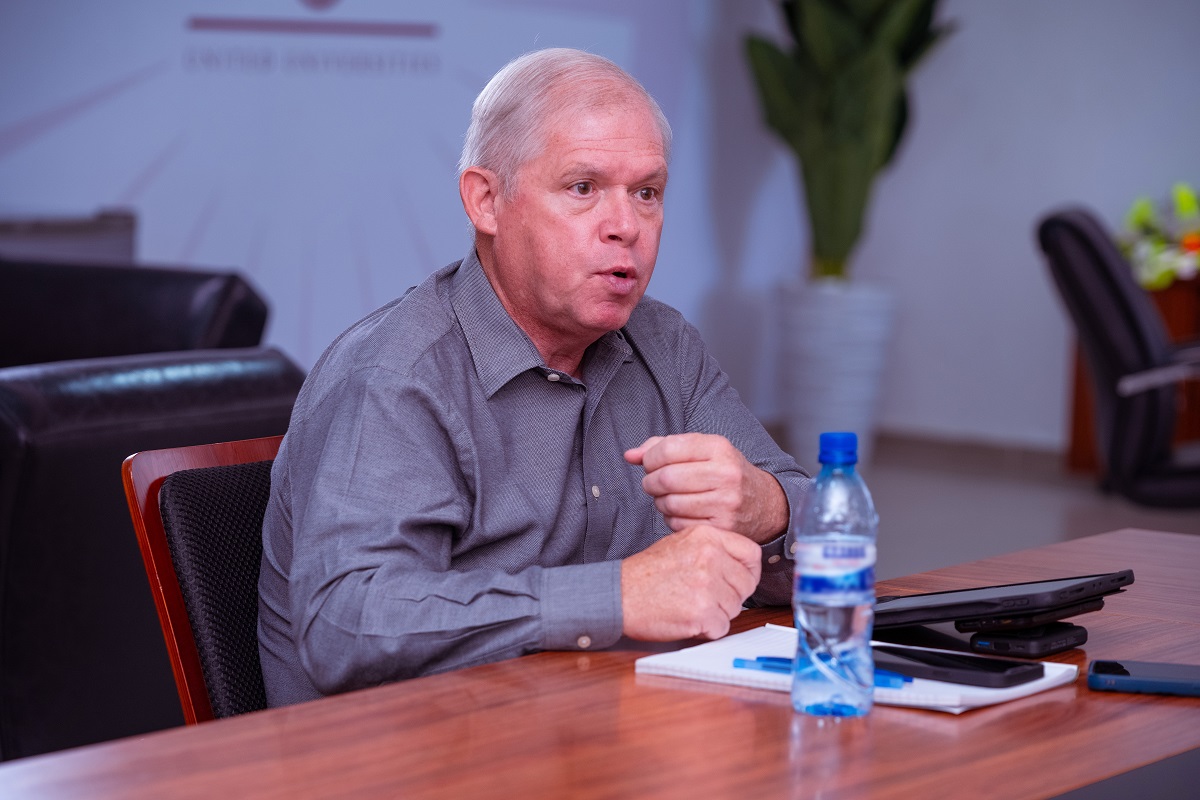
It’s more than the academics
Beyond the classroom, Nile University is committed to providing a safe and nurturing environment for students to live, explore their passions and build vital employability skills. This is reflected in the ongoing construction of additional ultramodern hostel blocks to provide safe and comfortable accommodation for students and a state-of-the-art student centre. Boasting a footprint of over 1,400 sqm, the student centre will provide students with top-notch spaces to gather, connect, and pursue their passions beyond the classroom. The facility will house the university’s Career Services Center and Entrepreneurship & Innovation Hub, providing resources, mentorship, and networking opportunities to students and empowering them to explore their passions, launch startups, and develop the skills necessary to thrive in a rapidly changing world of work and entrepreneurship.
Speaking on the impact of both facilities in enhancing student outcomes, the Pro-Chancellor stated, “Although, at our core, we are an academic institution, providing excellent pastoral care for students to allow them to have a rich overall experience on campus is very important to us. Providing a good living environment with the right facilities is critical for this. There needs to be [in our on-campus accommodation] consistent, reliable water and electricity supply, among other things. Our recently completed enhanced power station is key in this aspect. The facility, which seamlessly connects our solar energy solutions, electric grid, and standby generators allows us to provide reliable power supply on campus.

“The student centre [upon completion] is a resource that we can really use to make our graduates industry-ready. Top organizations want graduates who can contribute. So, what we hope to do [with the centre] is balance the [students’] academics with real-world training through career workshops, mentorship programmes, and other employability-focused initiatives. You’ll find that Nile University’s students and alumni are already sought after by top employers nationwide. Our employability partners span several sectors from banking to entertainment; they include high-profile organizations such as Access Bank, Stanbic IBTC, Huawei Nigeria, China Harbour Engineering Company, PwC, NITDA, NCC, Showmax, to name a few. So, the student centre is something that we can really use to further connect our student and alumni community with reputable employers and increase their access to job, internship, mentorship, and networking opportunities.”
A collaborative approach
Being a member of the largest pan-African network of private higher education networks with 15 institutions across 10 African countries, it is no surprise that collaboration is at the heart of Nile University’s approach to providing an impactful educational experience for students. Kareem, during the interview with Daily Trust, expressed the institution’s willingness to explore partnerships with like-minded entities on the capital projects and other areas of shared interest.
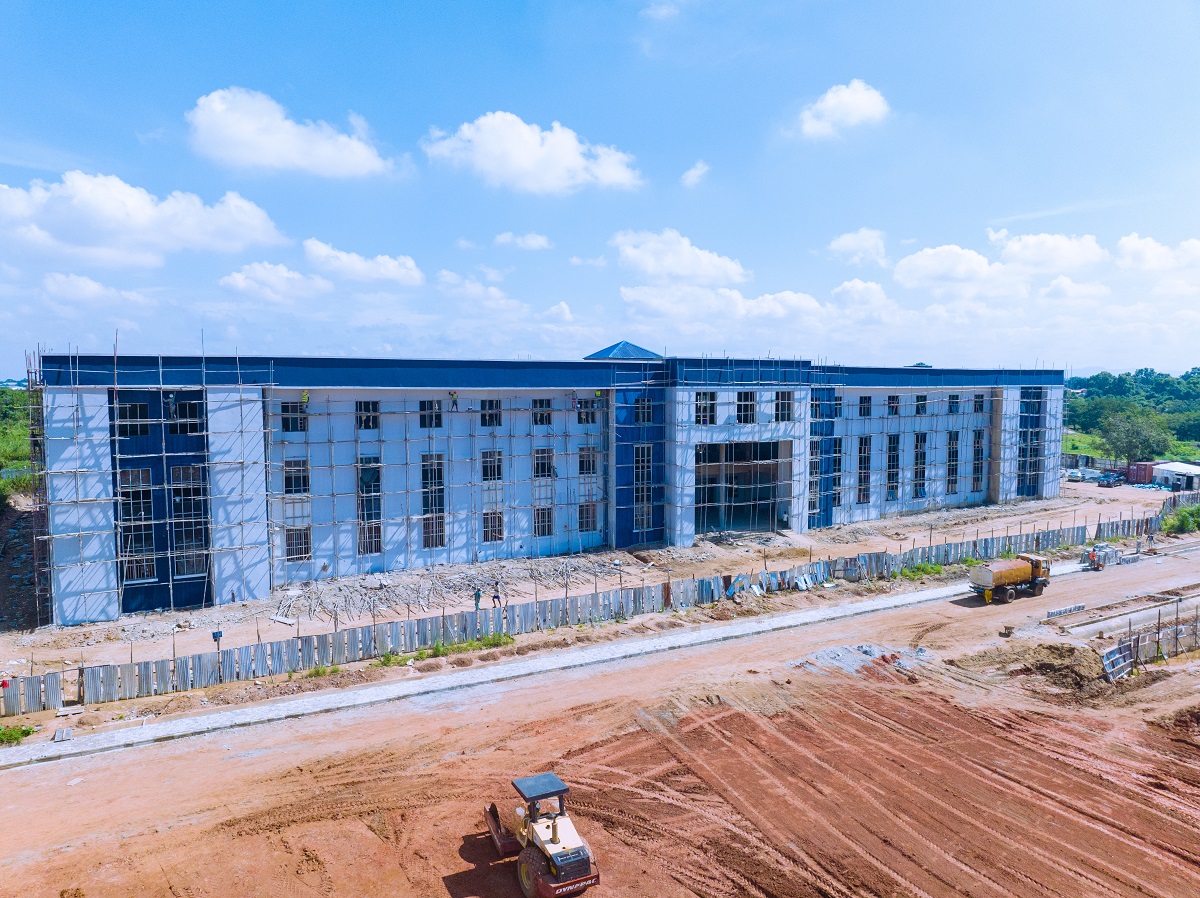
“In order to continue to add value, we can’t operate as an island. Like I always say, the monopoly mindset doesn’t achieve much in business. We are always happy to meet and discuss with as many willing partners with whom we share the common goal or vision of nurturing world-class African talent as possible. Nile University has active MoUs with several reputable Nigerian and international organizations across various sectors, including health, financial services, and education, to name a few. There are others in the pipeline we hope to execute, and we are always open to expanding this list” the CFO stated.
Future outlook
Given the massive scale of Nile’s accomplishments during the relatively short three-year period post-Honoris acquisition, it would not be remiss to expect the university to pause briefly to celebrate its accomplishments once the ongoing set of constructions (Phase II) is finalized. However, such is the relentless quest for excellence ingrained in the Nile (and Honoris) DNA that the institution is already looking ahead to the next phase of growth.
“Our goal is to be the largest player in the market, delivering quality education that is in line with international best practices. We have made giant strides toward this objective in recent years, evolving from an institution that predominantly serves Abuja and its immediate environment into one that draws students from as far as Port Harcourt, Akwa-Ibom, and further down the Southwest region, especially Lagos. We also have some international students from within and outside Africa, specifically Europe.
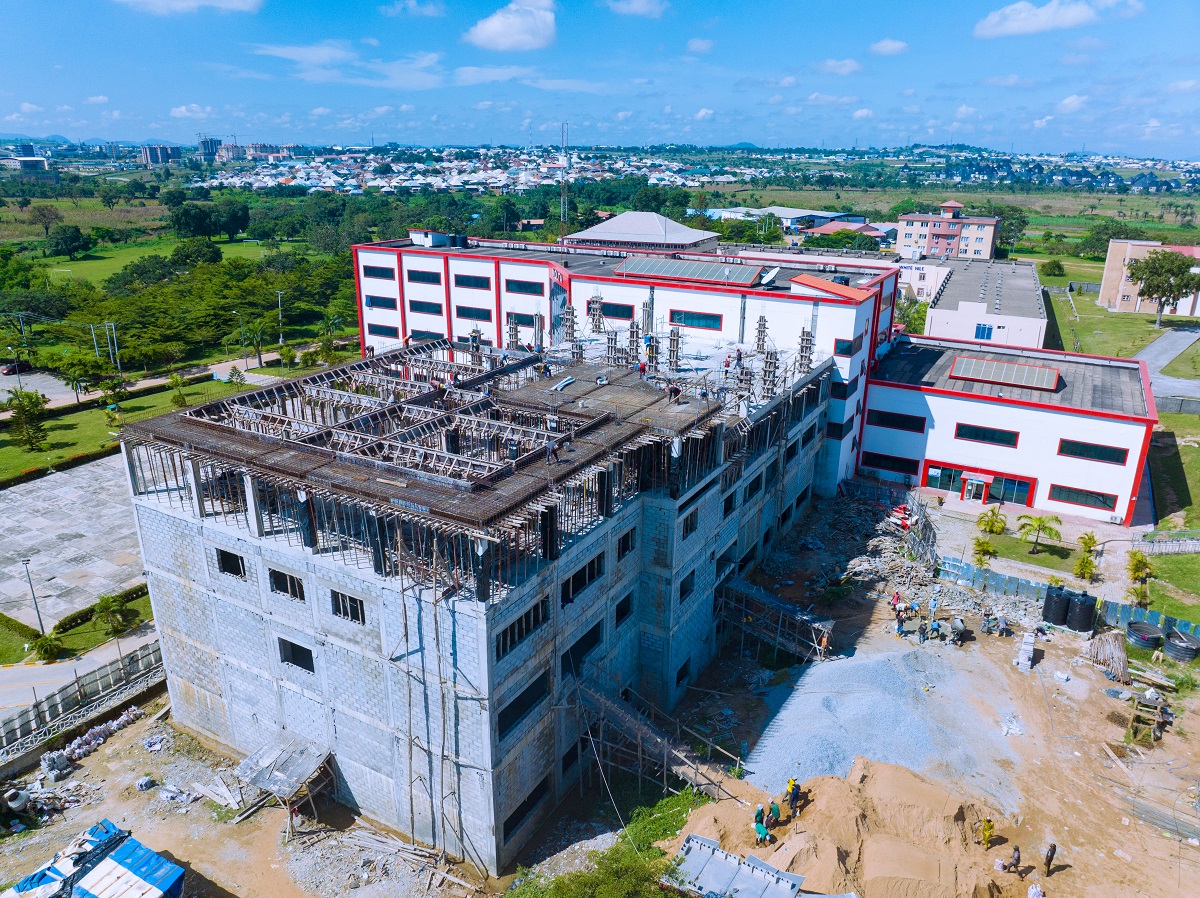
“Additionally, we have expanded our programme offerings. About three years ago, we only had six faculties. Today, we have eight, with plans to introduce new verticals or faculties to meet market demand. These factors have led to a fast-growing student population that is unlikely to slow down anytime soon. So, we cannot rest on our laurels in terms of infrastructure development if we are to satisfactorily cater for our growing community.
“Our main focus for Phase III of the capital projects will be on the construction of more dormitories or hostels to provide conducive and secure accommodation for the rapidly rising number of enrollees from outside Abuja and even Nigeria. We will also be building more academic facilities to house the new programmes we aim to introduce” Kareem stated.
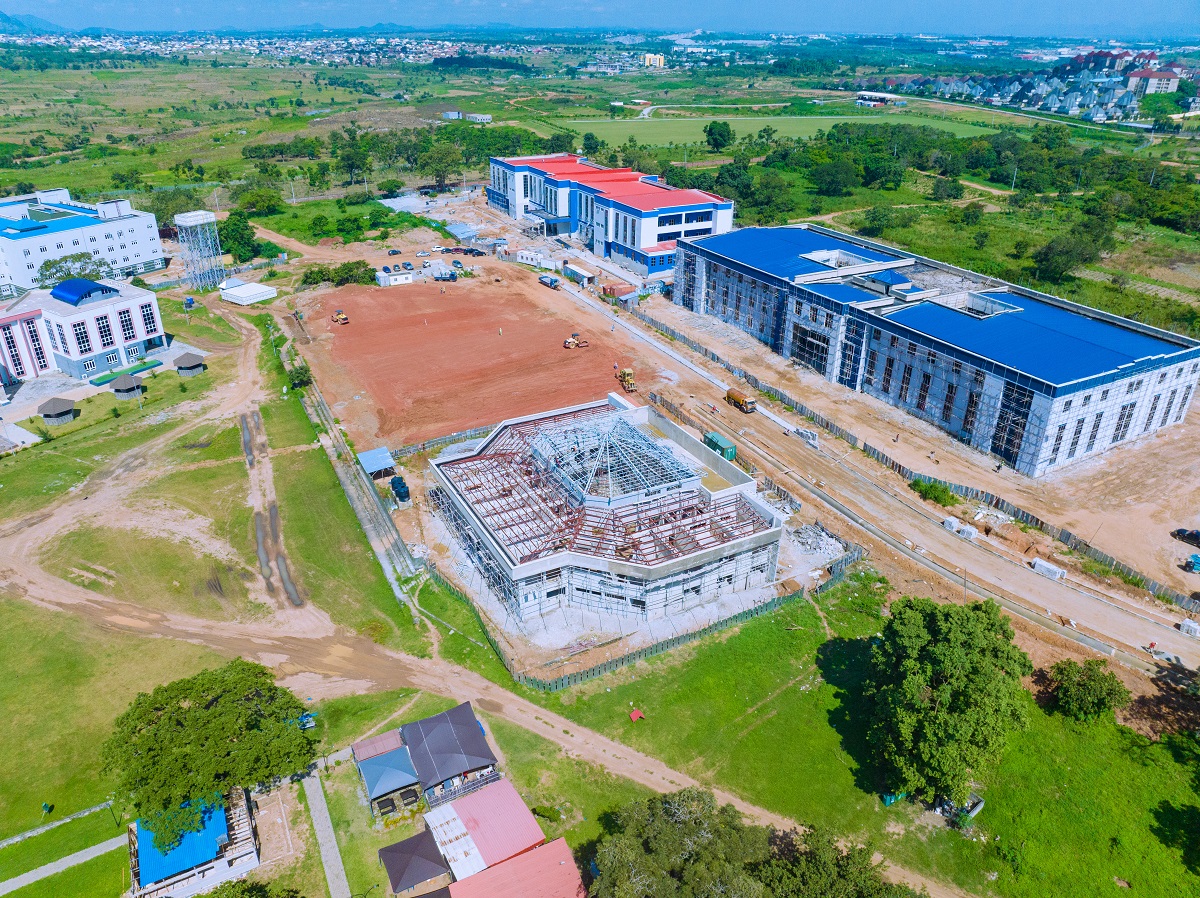
Concurring with Kareem, Vermaaten said, “We made a commitment to our students and their parents to give them a similar university experience to that obtainable in countries like the US, Canada or the UK, and we intend to keep that promise. This means that we must continue to find ways to serve them better. For us, this entails continuous investment in state-of-the-art academic and housing facilities, expansion of academic offerings such as the introduction of short courses for Postgraduate students and learning management systems, among others. The bottom line is we know what the Nigerian parent and student wants in terms of quality education, and we are committed to giving it to them. To providing them with a global education experience in a Pan African way.”
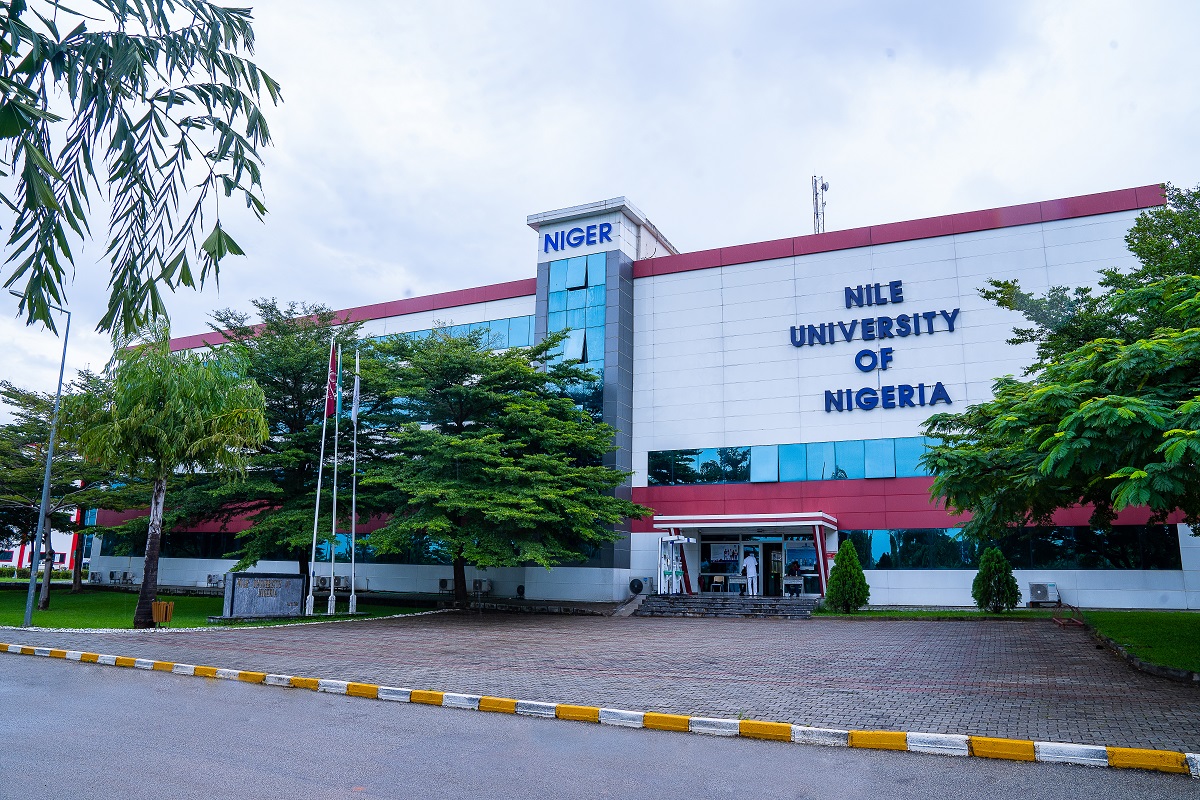
 Join Daily Trust WhatsApp Community For Quick Access To News and Happenings Around You.
Join Daily Trust WhatsApp Community For Quick Access To News and Happenings Around You.


